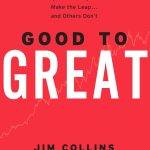
Customers say
Customers find the book easy to read and well-researched, making it a must-read for anyone serious about building wealth. Moreover, they appreciate its timeless ideas and ageless wisdom, with one customer noting its relevance to today’s realities. Additionally, customers consider it a great sequel to The Millionaire Next Door.
Make It Yours – See Your Price On Amazon!
A quick rundown of this product’s key features:
The runaway best seller The Millionaire Next Door told us who America’s wealthy really are. The Millionaire Mind tells how they got there, and how to become one of them. In this audio program, you’ll discover the surprising answers to questions such as: what success factors made them wealthy in one generation; what part did luck and school grades play; how do they find the courage to take financial risks; how did they find their ideal vocations; what are their spouses like and how did they choose them; how do they run their households; how do they buy and sell their homes; and what are their favorite leisure activities. To become a millionaire you have to think like one. The Millionaire Mind tells you how.
Our Top Reviews
Reviewer: Leonardo Gosling
Rating: 5.0 out of 5 stars
Title: Perfect
Review: All prefect!!!
Reviewer: B. Stephan
Rating: 5.0 out of 5 stars
Title: Interesting insights into ‘millionaire minds’.
Review: This is a great follow up, or, companion book to the author’s ‘The Millionaire Next Door’, which I thought was an excellent book. This one may be better, or maybe it’s that the previous book takes out the shock value of who actually are millionaires, and this answers some questions about the mindsets and life styles of many millionaires. I have had this book for some time and find myself rereading parts of it. I find the discussion about quality of shoes very interesting (I have upgraded my brand of shoes, partially because now I know which brands are actually ‘worth it’), and while not a scotch whiskey drinker, I have investigated brand placement (I previously had no idea scotch whiskey of any kind would be sold in plastic bottles) at my local grocery/liquor store but have no interest in side by side taste testing. This book taught me some things I never would have imagined and I enjoy that aspect very much.At an earlier stage of life I was caught up in thinking certain brands would bring more satisfaction in my life. I gave up that notion decades ago on my own. This book supports me in telling me I have been on the right track, and there has been no shortage of people who have told me, over the years, that I am a bit off beat. I have been “following my bliss”. Good book, I recommend it, especially to young people.
Reviewer: Zachary Slayback
Rating: 4.0 out of 5 stars
Title: Great follow-up to The Millionaire Next Door
Review: If The Millionaire Next Door was a look at what America’s affluent look like, The Millionaire Mind is a look at how they think and live, and why. I liked TMND more, but this is a different kind of book. It more looks at habits and ways of thinking than simply at how people live. It also has a bit of a self-help vibe to it that detracts from the overall message of the book — this can be overlooked, but does take away in the end.Don’t listen to the anti-wealth, anti-prosperity reviewers who give this book a negative review because they don’t like the rich. Read it with an open mind and look at why the rich lead the lives with the habits that they do. One reviewer complains that the rich don’t waste time and money on DIY projects but look to use discounting options like coupons. He totally misses that they do the latter because it is a good exercise in financial discipline that is primarily used to teach children (and that they understand thinking on the margin and the power of habits). Make sure you read the explanations!Key Takeaways:> America’s affluent rank integrity far higher than IQ or grades or an elite college in importance for contributing to their successes.> Discipline, self-esteem, integrity, and honesty are ranked highly by millionaires as some of the most important characteristics for success. Few admit to getting much of worth out of college except for opportunities to develop discipline further.> Most make their money in ways that require a lot of courage: entrepreneurship, self-employment, sales rank very highly.> Accordingly, they have developed a strong sense of immunity against critics. Many admit to being religious and praying often, while others have strong psychological patterns for never dwelling on past mistakes and thinking positively about their futures. Planning, discipline, and proper risk-reduction-measures rank highly in their habits that help them keep their sense of courage.> Millionaires love their jobs… but they are not workaholics in the traditional sense.> There is no statistically significant correlation between how early somebody wakes up and their net worth. Wealthier people do not necessarily wake up earlier.> Few have ever received economic outpatient care from their parents.> Few are consumerist. They enjoy spending time with their families more than buying fancy cars or going on fancy vacations (See TMND for more on this.)> America’s wealthy pay more than their fair share of taxes — accordingly, they spend a substantial part of their time consulting with tax accountants.> Few made their money on the stock market and few rely on stock brokers for their publicly traded investments — instead, they rely on their CPAs and on their lawyers as their closest investment advisors.> Choice of spouse is extremely important — there are some characteristics of millionaire couples that are not shared by most normal people. For example, one in two couples from the populace at large would leave their significant other if they got laid off. This is not true for millionaire couples — many of whom had to support the other during early stages of entrepreneurial ventures.> Most live in fine houses in decent neighborhoods with good public schools. Few (~1 in 4) build their homes. Most buy used.I’d be interested in seeing an updated version, especially on housing choices, in the post-Great Recession world. The distinction between Balance Sheet Affluent and Income Statement Affluent (wealthy vs. high-income) is useful throughout the book. Although the numbers are a little old at this point (going on 15 years), the insight is timeless.Choice Quotations:”Why is our society so concerned with testing intelligence? We place great emphasis on achievement and we want to know even beforehand who will achieve tomorrow in the real world of work. We want to give awards to achievers before they even achieve. We are the a priori, the presumptive society.In spite of this, some students never allow such academically oriented predictions to influence them. A disproportionately large percentage of multimillionaires fit into this category.” (p. 69)”A disciplined person sets his or her sights on a lofty target and then figures out productive ways to reach the target.” (p. 83)”Self-made millionaires have an interesting immune system. I am not talking about an ability to fight off infectious diseases — I’m referring to their mental strength. They have an acquired ability to deflect even the harshest evaluations by some of the nastiest critics. This mental armor plate was initially forged during their salad days. Over time, their inoculation system grows in strength. Why? Because even in their later years, these millionaires constantly encounter negative evaluations by various critics and authority figures.” (p. 101)”Many people, even some of this country’s intellectually gifted, lack Mr. Richard’s intuition. They often find themselves in fields where the competition is fierce. Consider the fact that 80% of the associate professors at Harvard — among the most intellectually gifted people in this country — are denied tenure. These professors accept positions at other universities, and many eventually became tenured. So it is not only choice of vocation, it’s also the level of competition within a chosen geographic or other environment that influences whether a career choice succeeds.” (p. 192)”As for the prototypical smart fellow I met in Kinko’s — he’s intelligent; he passed the bar exam; he went to an accredited law school. So what? He’s just one of thousands of attorneys listed with 74 pages of very smart competitors.” (p. 193)”Mr. Richard is talking about ‘template career selection.’ Certain high-status occupations have an established process of training, and our top-students are channeled into these vocations. Physicians, attorneys, and CPAs follow a set procedure. But people like Mr. Richard define their own channel. They create unique and highly profitable businesses and they have little competition.” (p. 195)”‘Everybody out there has an opportunity to get into business … the opportunity to sell somebody something … some can’t see it … you have to be able to see it.'” (p. 221)”His motivation is a direct result of envisioning buyers being able to solve problems with his technology, and that is, in essence, why he is a success today.” (p. 226)”Millionaires are frugal when frugality translates into real increases in the economic productivity of a household.” (p. 283)”They [millionaires] believe that it is very important to be price-sensitive with respect to products that lose all or most of their initial value as soon as they are purchased.” (p. 288)”It’s important for America’s youth to discover that millionaires, even most decamillionaires, don’t depend on consumer goods to enjoy life. Their pleasures and self-satisfaction have more to do with their families, friends, religion, financial independence, physical fitness and perhaps a bit of golf. Look at it the other way; there’s nothing more pitiful than a person who has no close friends, no loving family, yet owns millions of dollars of consumer goods.” (p. 365, 368)”The rich pay a lot more than their fair share of taxes in this country. Those with annual realized incomes of $1M or more make up less than 1/10th of 1% of the households of America, but they account for about 14.7% of all the income tax collected.” (p. 375)
Reviewer: Ben
Rating: 5.0 out of 5 stars
Title: Ever wonder just why or what we are saving up for?
Review: Ever wonder just why or what we are saving up for? What exactlydo we do with “it” once we get “it”? What do others do? What haveothers been doing? Are there others? This book actually answerssome of the primary questions we should all have when we set outon this journey. It will help us understand if we are being a tadcrazy about how far we are taking things. Are we comfortable? Isour house sufficient for us? For our family?The primary things that many of us overlook in some vapid searchfor a “thing” — that is what this book looks at in a way. It answersthe fundamental question we might do well to ask when we setout on the adventure to wealth. “What is wealth in my country?What constitutes value?”This book looks at a lot of that. My grand takeaway was that I wason the right track having a modest closet, modest house, and apaid-for car. Most wealthy folks are not on MTV Cribs.If you’re now solidly working on your way, this book will help youunderstand your cohort of other wealthy Americans and how theywork on their way.
Reviewer: Admi re r
Rating: 5.0 out of 5 stars
Title:
Review: This book is impressive like the previous one TMND. Food for thought for the dis-illusioned get rich quick wannabes. Recommend!
Reviewer: Brad Nikolic
Rating: 5.0 out of 5 stars
Title:
Review: Well written and easy to read even though it is based on academic work. Thoroughly enjoyed this book and learned a few important lessons what it really means to create one’s own wealth.
Reviewer: Anthny
Rating: 5.0 out of 5 stars
Title:
Review: Excellent insights to the mindset necessary for success. Not just useful for making money.
Reviewer: LookingForAll
Rating: 5.0 out of 5 stars
Title:
Review: Das Buch ist verblüffend. Der Autor hat Verhaltensmuster von Vermögensmillionären untersucht. Ihre Bildung, Berufe, Wohnumgebung, Kaufgewohnheiten.Das Ergebnis: Nichts von dem was man so in Deutschland in Zeitungen/Zeitschriften/Fernseh über Millionäre mitbekommt, hat auch nur nährungsweise etwas mit der Realität zu tun.Ein paar Fakten: Millionäre haben eher nur eine mittelgute Ausbildung (Studium gerade so intensiv, dass man ausreichend lernt, aber nicht so gut, dass ein Studium extrem zeitaufwendig wird) an einer mittelguten Uni. Bildung außerhalb der Uni wird dagegen konsequent und über Jahrzehnte hinweg betrieben. Millionäre schicken ihre Kinder _nicht_ auf teure Privatschulen. Millionäre bauen _keine_ Häuser. Jedenfalls nicht für sich selbst. Sie bevorzugen ältere und billigere Häuser in guter Wohnlage. Häuser kaufen sie dann, wenn andere Leute kein Haus kaufen wollen. Millionäre lassen ihre Schuhe (mehrfach) vom Schuster reparieren, statt sich neue Schuhe zu kaufen. Millionäre sind von außen nicht als Millionäre erkennbar.In der Summe: Millionäre haben ein ausgesprochen bodenständiges Leben. Das große Vermögen entsteht durch eine Lebenseinstellung, die auf die Sammlung von Vermögen ausgerichtet ist. Das Buch ist amerikanisch und auch die zugrunde liegenden Daten stammen von amerikanischen Millionären. IMO ist aber die Denkweise von Millionären übertragbar auf Deutschland.Spannend: Es gibt in den USA sogar Lehrer, die es schaffen im Laufe ihres Lebens Millionär zu werden. Im Buch steht, wie sie es gemacht haben.
Reviewer: bf109g
Rating: 5.0 out of 5 stars
Title:
Review: My parents and my boss are Japanese decamillionaire. I am a millionaire but not deca yet. I say “the millionaire next door”is enough to be millionaire, but if you want to be deca, you should read this also. If you can read paper back, I recommend it more than japanese one. I’m afraid why so many secrets, which have been taught within the affluent family, have been disclosed in this book. My mom used to say when I was an elementary school boy, like this “人の役に立つことで、人のやりたがらない(できない)事を、人のやらない時におやりなさい、そうすればお金は後からついてくるものよ。”
Price effective as of Mar 31, 2025 05:01:18 UTC
As an Amazon Associate Dealors may receive a commission for purchases made through these links.









